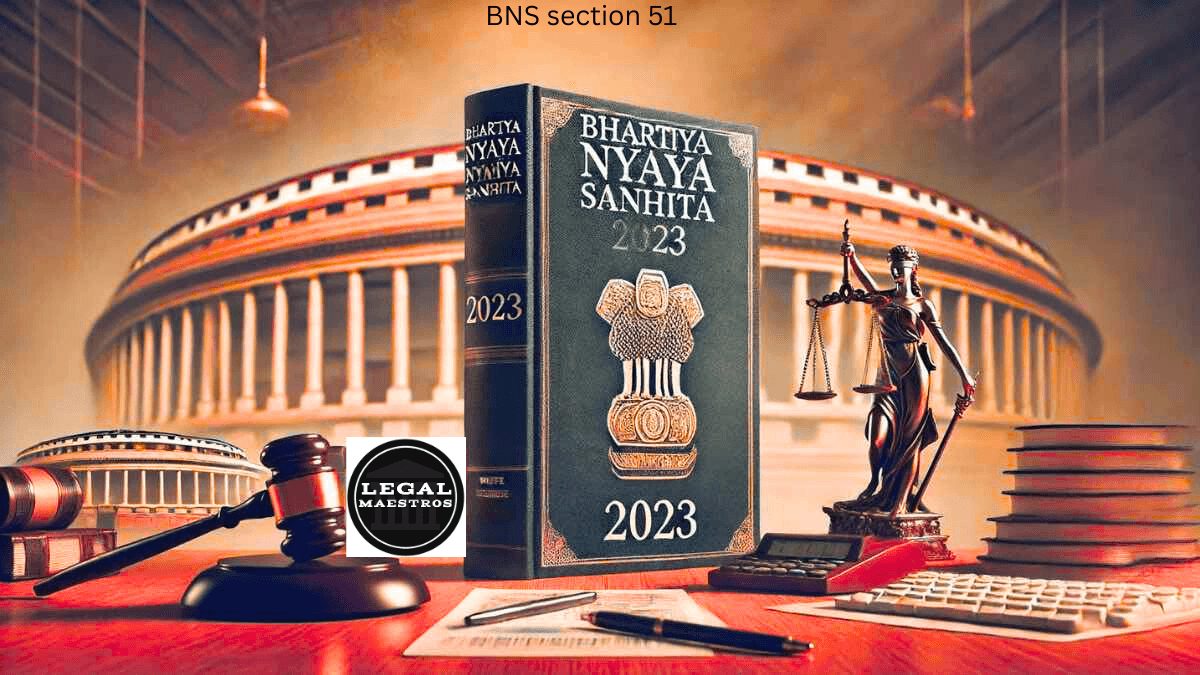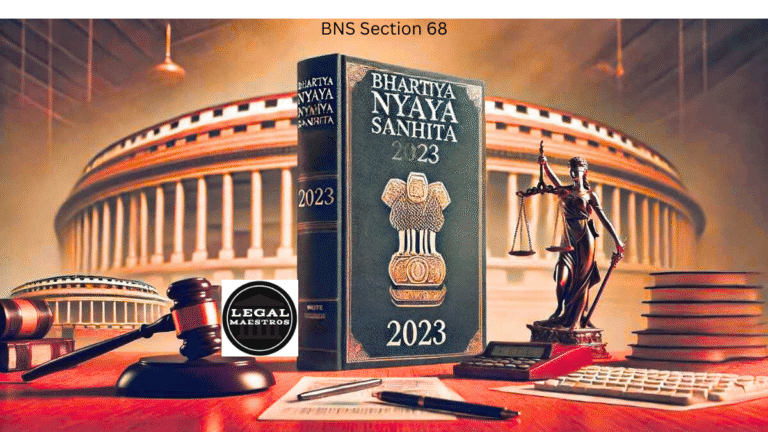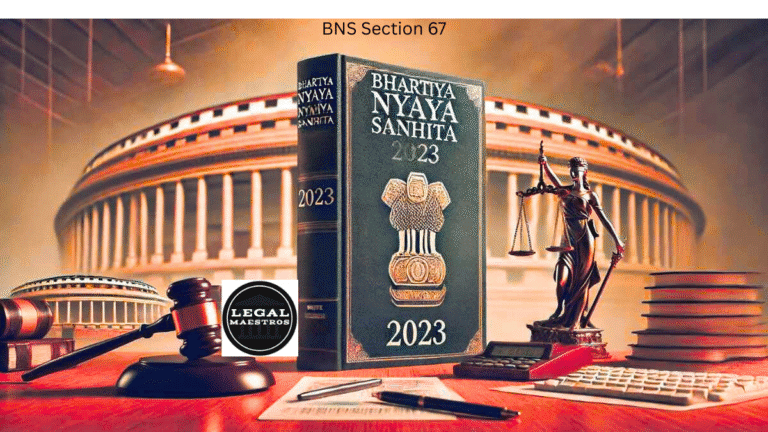
Section 51 of the Bharatiya Nyaya Sanhita, 2023: Liability of an Abettor When a Different Act Is Committed
Section 51 of the Bharatiya Nyaya Sanhita (BNS), 2023, discusses circumstances in which an individual (the abettor) urges or enables another person to perform a particular conduct, but the act that is eventually carried out is not the one that was intended to be committed. In accordance with this clause, the abettor may still be held legally liable for the conduct that was actually performed, provided that specific requirements are satisfied.
Components of Section 51 That Are Significant
As stated in Section 51, if a person aids and abets another act, and then that other act is carried out, the abettor is held accountable for the act that was carried out as if they had directly assisted in its execution. This duty is only incurred in the event that:
1. The act that was carried out was most likely produced as a result of the abetment.
For any queries or to publish an article or post or advertisement on our platform, do call at +91 6377460764 or email us at contact@legalmaestros.com.
2. The act was carried out under the influence of the incitement, with the assistance of the conspiracy that constituted the abetment, or in pursuit of the conspiracy.
Not only does this imply that the law acknowledges the abettor’s culpability for the act that was intended, but it also acknowledges their responsibility for any additional act that is a predictable consequence of their encouragement or support.
Illustrations to Illustrate the Content of Section 51
One can have a better understanding of the operation of Section 51 by considering the following examples:
For any queries or to publish an article or post or advertisement on our platform, do call at +91 6377460764 or email us at contact@legalmaestros.com.
1.Mistaken Target Due to Instigation”: If person A asks a kid to poison Z’s food and then supplies the poison to the child, but the child accidentally poisons Y’s food instead, then person A is still responsible for Y’s poisoning. Specifically, this is due to the fact that A’s actions were influenced by the child’s actions, and such an error was a likely consequence of the abetment.
For More Updates & Regular Notes Join Our Whats App Group (https://chat.whatsapp.com/DkucckgAEJbCtXwXr2yIt0) and Telegram Group ( https://t.me/legalmaestroeducators )
2. An Additional Crime That Could Not Have Been Anticipated**: Let’s say that A compels B to set Z’s house on fire. During the course of the action, B not only sets fire to the house but also steals from it. Because the theft was a separate act and not a likely outcome of the burning, A is guilty of abetting the arson but not the theft. This is because the theft was a separate act.
For any queries or to publish an article or post or advertisement on our platform, do call at +91 6377460764 or email us at contact@legalmaestros.com.
3. “Escalation Leading to Murder”: If A instigates B and C to break into an inhabited residence at midnight for the purpose of committing a robbery and gives them with weapons, and during the course of the robbery, B and C kill an inmate who resists, then A is responsible for the murder. This is due to the fact that the armed robbery that was initiated by A most likely resulted in the murder that was committed.
• Comprehending the Concept of ‘Probable Consequence’
The word “probable consequence” refers to an outcome that is within the realm of what is considered to be a reasonable expectation as a result of the abetment. It is possible to hold the abettor liable for the act that was committed if the conduct fits within the range of outcomes that could have been anticipated as a result of the acts of the abettor.
implications for the Law
In accordance with Section 51, those who support or aid in illegal acts are not able to avoid legal responsibility simply due to the fact that the specific conduct that they meant to carry out was not carried out. In doing so, it highlights the significance of foreseeability as well as the influence that the activities of the abettor have on the actual offense that was committed.
For any queries or to publish an article or post or advertisement on our platform, do call at +91 6377460764 or email us at contact@legalmaestros.com.
Abettors are held accountable for the effects of their instigation or support, even when a different act than intended is undertaken, thanks to Section 51 of the Bharatiya Nyaya Sanhita, 2023. This section plays a significant role in holding abettors accountable. For the purpose of ensuring that justice is carried out and that individuals are held accountable for the events that can be anticipated as a result of their activities, the law places an emphasis on the likely consequences and the influence of the actions of the abettor.





![Research Assistantship @ Sahibnoor Singh Sindhu, [Remote; Stipend of Rs. 7.5k; Dec 2025 & Jan 2026]: Apply by Nov 14, 2025!](https://legalmaestros.com/wp-content/uploads/2025/11/Gemini_Generated_Image_s0k4u6s0k4u6s0k4-768x707.png)
![Karanjawala & Co Hiring Freshers for Legal Counsel [Immediate Joining; Full Time Position in Delhi]: Apply Now!](https://legalmaestros.com/wp-content/uploads/2025/11/Gemini_Generated_Image_52f8mg52f8mg52f8-768x711.png)
![Part-Time Legal Associate / Legal Intern @ Juris at Work [Remote]: Apply Now!](https://legalmaestros.com/wp-content/uploads/2025/11/ChatGPT-Image-Nov-12-2025-08_08_41-PM-768x768.png)
![JOB POST: Legal Content Manager at Lawctopus [3-7 Years PQE; Salary Upto Rs. 70k; Remote]: Rolling Applications!](https://legalmaestros.com/wp-content/uploads/2025/11/ChatGPT-Image-Nov-12-2025-08_01_56-PM-768x768.png)